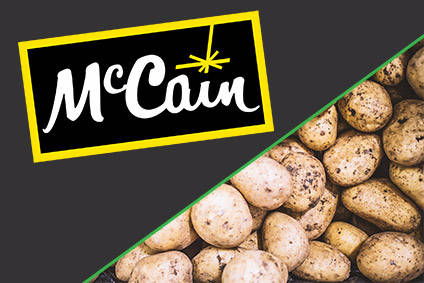
Canada-based frozen products giant McCain Foods has pledged all of its French fries will be made with potatoes from a farm using more sustainable agricultural practices by the end of the decade.
The company said 100% of its potato acreage – representing 149,733 hectares worldwide – will be grown using regenerative agriculture by 2030.

Discover B2B Marketing That Performs
Combine business intelligence and editorial excellence to reach engaged professionals across 36 leading media platforms.
The company said this transition will “restore and protect soil health and quality and look to natural processes to control pests, prevent plant disease and strengthen crops against severe weather events”.
It added that “regenerative agriculture promotes biodiversity, more plant cover on fields throughout the year, minimising soil disturbances and maximising crop diversity”.
McCain CEO Max Koeune said the Covid-19 pandemic has put a spotlight on the precarious nature of the global food system but stressed that climate change remains the largest challenge.
“It’s estimated that a quarter of man-made carbon emissions come from the production of food and if we have to grow more food to feed more people that will only intensify. If we don’t transform the way we grow food, the whole system is at risk of suffering irreparable damage,” he said.

US Tariffs are shifting - will you react or anticipate?
Don’t let policy changes catch you off guard. Stay proactive with real-time data and expert analysis.
By GlobalDataHe added: “As a global leader in food production, McCain has a responsibility to re-imagine the way we grow a potato in a way that is beneficial for both the planet, and the communities where we operate. We have to act today to make things better tomorrow.”
Among other sustainability commitments announced by McCain today (7 June) are the opening of three “Farms of the Future” in different growing regions around the world by 2025, reducing carbon emissions from potato farming, storage and freight by 25% by 2030 and reducing carbon emissions from all operations by 50% by 2030.





